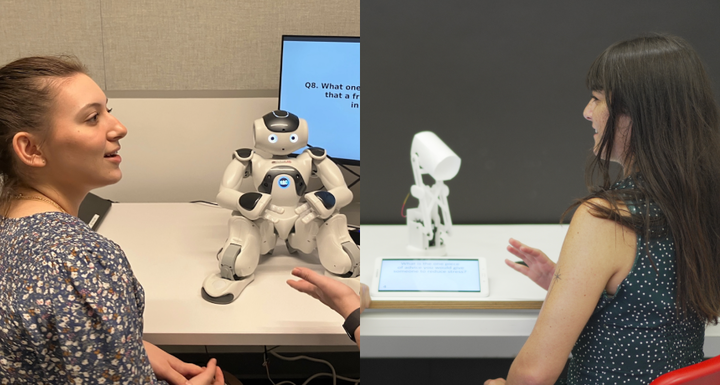[CHB 2025] The Impact of a Robot's Agreement (or Disagreement) on Human-Human Interpersonal Closeness in a Two-Person Decision-Making Task

Abstract
Robots and artificial agents are becoming increasingly integrated into our lives and show promise in assisting people in decision-making tasks. Despite their advantages, robot-assisted decision-making systems may have negative effects on the relationships between human team members. In this work, we examine the influence of the robot’s agreement (or disagreement) on the interpersonal closeness between two participants in a two-person decision-making task. We test the robot’s impact in two experiments, Experiment 1 (N = 172, 86 pairs) with a High Anthropomorphism Robot and Experiment 2 (N = 150, 75 pairs) with a Low Anthropomorphism Robot. For both experiments, we use a 2 x 2 study design to examine how the perceived interpersonal closeness between two participants was influenced by two aspects of robot behavior, namely the valence of the robot’s feedback (positive feedback or negative feedback) and the treatment of the two participants (equal treatment or unequal treatment). Our results demonstrate that interacting with the High Anthropomorphism Robot led to greater interpersonal closeness between participants when the robot provided positive feedback as opposed to negative feedback. The Low Anthropomorphism Robot had a different and opposite effect, interactions with this robot led to greater interpersonal closeness when the robot’s feedback was equal as opposed to unequal and when the robot provided negative feedback as opposed to positive feedback. Our results indicate that robots can shape human-human relationships when indicating their agreement with people’s perspectives in two-person decision-making tasks and that the robot’s influence depends on its appearance and communication style.